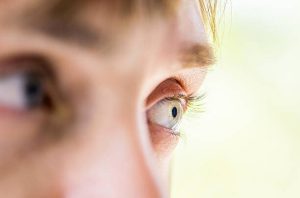
Central Serous Retinopathy (CSR) is a condition that affects the retina, the thin layer of tissue at the back of the eye responsible for processing light into vision. This disorder is characterized by fluid accumulation under the retina, leading to visual disturbances such as blurred or distorted vision.
While CSR can resolve on its own in some cases, more persistent cases require treatment to prevent lasting damage. In this article, we will explore the causes, symptoms, and treatment options, including the benefits of private central serous retinopathy treatment for effective management.
Understanding Central Serous Retinopathy
CSR primarily affects the macula, the central part of the retina responsible for detailed vision. When fluid builds up under the macula, it causes the retinal layers to detach, leading to vision problems.
This condition is more common in adults aged 20 to 50, with a higher prevalence in men than women. While CSR is not typically life-threatening, it can significantly impact quality of life due to its effects on eyesight.
Causes of Central Serous Retinopathy
The exact cause of CSR is not fully understood, but researchers believe stress plays a significant role. Elevated levels of cortisol, a stress hormone, may weaken the barrier between the retina and the underlying blood vessels, allowing fluid to leak and accumulate under the retina. Other contributing factors include:
- Corticosteroid Use
Prolonged use of oral or topical steroids has been linked to CSR, as they can increase the permeability of retinal blood vessels. - Underlying Health Conditions
Certain conditions, such as hypertension, sleep apnea, and autoimmune disorders, may increase the risk of developing CSR. - Lifestyle Factors
Smoking, excessive alcohol consumption, and irregular sleep patterns are thought to exacerbate the risk of CSR by compromising overall eye health. - Genetics
A family history of CSR can also increase susceptibility, although the genetic connection is not yet fully established.
/assets/production/practices/f01e12077c238829c9becc810af82fcaaad43d6a/images/2571822.jpg)
Symptoms to Watch Out For
The symptoms of CSR often appear suddenly and can vary in intensity. Common signs include blurred or distorted vision, particularly in one eye, a dark or gray spot in the center of the visual field, reduced contrast sensitivity and color perception, and straight lines appearing wavy or bent (metamorphopsia). If you notice these symptoms, seeking medical evaluation promptly is crucial. Early diagnosis can prevent complications and ensure better outcomes.
Diagnosis of CSR
CSR is diagnosed through a comprehensive eye exam. Specialists may use advanced imaging techniques such as optical coherence tomography (OCT) and fluorescein angiography to confirm the presence of fluid under the retina. These tests help pinpoint the affected area and determine the severity of the condition, enabling personalized treatment plans.
Treatment Options for Central Serous Retinopathy
For many individuals, CSR resolves spontaneously within a few months without requiring treatment. However, persistent or recurrent cases may necessitate medical intervention. Treatment options include:
- Medications
Anti-VEGF (vascular endothelial growth factor) injections and oral medications, such as mineralocorticoid receptor antagonists, can help reduce fluid leakage and promote retinal healing in some subgroups of cases. - Laser Therapy
Focal laser treatment is used to seal the leaks in retinal blood vessels. This option is typically reserved for cases where fluid accumulation persists beyond six months. - Photodynamic Therapy (PDT)
PDT involves using a light-sensitive drug and laser to target the affected area. It is a safe and effective option for chronic CSR cases. - Lifestyle Modifications
Reducing stress, avoiding corticosteroids, and improving sleep hygiene can support recovery and prevent recurrence.
For a tailored approach to management, private central serous retinopathy treatment is an excellent option. Private clinics offer access to state-of-the-art diagnostic tools and personalized care, ensuring that patients receive optimal and precise treatment based on their unique needs.
Why Consider Private Central Serous Retinopathy Treatment?
Private clinics specializing in eye health provide several benefits, including shorter wait times, access to advanced treatment options, and a more individualized approach to care. These facilities often utilize the latest technology for diagnosis and treatment, giving patients peace of mind and quicker recovery times. If you are seeking effective and timely care for CSR, exploring private treatment options is a wise decision.
Conclusion
Central Serous Retinopathy is a manageable condition with the right care and timely intervention. Understanding its causes and symptoms is the first step toward effective treatment. While CSR often resolves without intervention, chronic cases require a targeted approach and timely intervention to prevent loss of vision.




